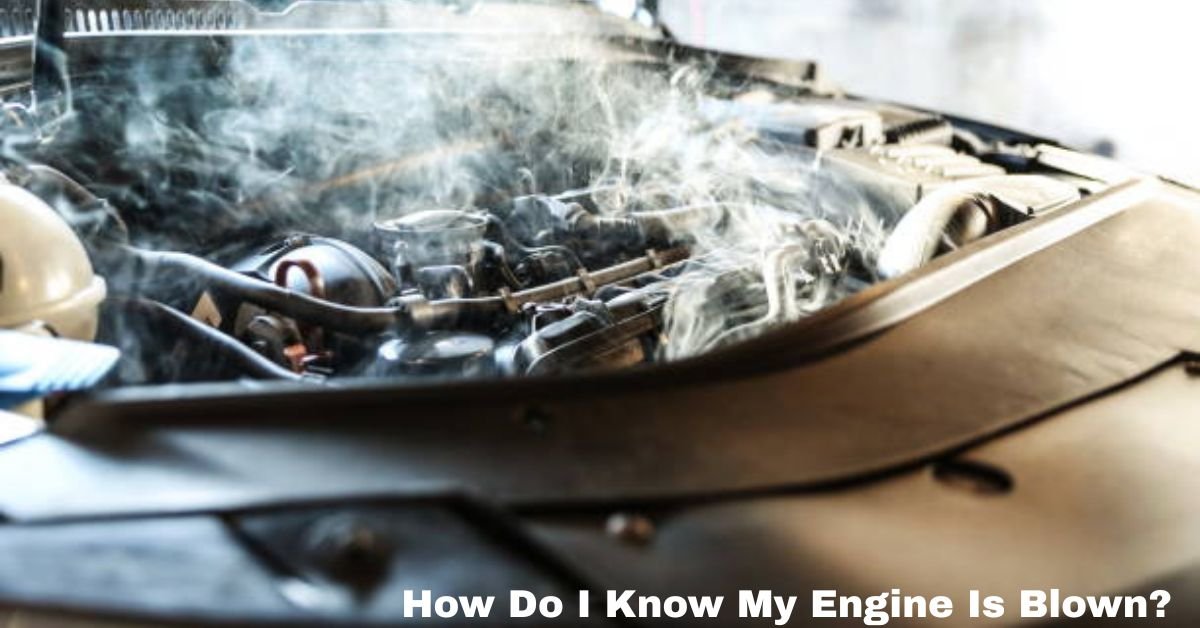If you’ve ever experienced your car acting up and you’re worried the problem could be serious, the thought of a “blown engine” probably crossed your mind. It’s one of the most dreaded diagnoses for any car owner. But what does it actually mean to have a blown engine, and how can you tell if that’s the issue?
In this blog post, we’ll explore what a blown engine is, the common symptoms, and what to do if you think your car might be facing this catastrophic failure.
How Do I Know My Engine is Blown?
What Does “Blown Engine” Mean?
The term “blown engine” is often used broadly to describe a major engine failure, but it doesn’t always mean the same thing. It could refer to a cracked engine block, a broken connecting rod, a blown head gasket, or even a seized engine. In short, it’s when the engine has suffered damage significant enough that it can’t operate properly — or at all — without extensive repairs or a complete replacement.
Common Signs Your Engine Might Be Blown
There are several warning signs that could indicate a blown engine. The following are a few of the most typical symptoms:
1. Knocking or Tapping Sounds
One of the first signs of internal engine failure is a loud knocking or tapping noise, especially while the engine is running. This could mean that internal components like the connecting rods or crankshaft are damaged due to a lack of lubrication or extreme wear.
2. Thick Smoke From the Exhaust
If you notice blue, white, or black smoke pouring from your exhaust, it’s a sign that something is seriously wrong. Blue smoke usually indicates burning oil, white smoke could mean coolant is leaking into the combustion chamber (often due to a blown head gasket), and black smoke suggests too much fuel is being burned.
3. Loss of Power
A significant drop in engine performance, including a rough idle or inability to accelerate properly, could be due to internal damage. If your car feels sluggish and unresponsive, it’s a red flag.
Must Read: How To Flush An Engine That Had Metal In It?

4. Coolant or Oil Leaks
Leaking fluids under your car can also indicate engine trouble. If your oil looks milky or your coolant level keeps dropping with no visible leak, you might have a cracked engine block or blown head gasket — both serious issues.
5. Check Engine Light or Warning Lights
While this light can be triggered by many different things, a flashing check engine light or multiple warning lights can sometimes signal catastrophic engine problems. It’s always a good idea to scan your vehicle with an OBD-II reader or take it to a mechanic for diagnosis.
6. The Engine Won’t Start
If your engine cranks but doesn’t start, or worse — doesn’t even crank — it could be seized or otherwise completely inoperable. This is frequently the last phase of an engine blowout.
Diagnosing a Blown Engine
If you’re experiencing one or more of the symptoms above, it’s essential to get a proper diagnosis before jumping to conclusions. A mechanic can perform a compression test, inspect for coolant in the oil, check for bent valves or damaged pistons, and run a scan for diagnostic trouble codes.
What to Do If Your Engine is Blown
Finding out that your engine is blown can be heartbreaking and expensive. Here are some options to think about:
- Repair or Rebuild: In some cases, the engine can be rebuilt or repaired. This option is often less expensive than a full replacement but depends on the extent of the damage.
- Engine Replacement: Installing a used or remanufactured engine is sometimes more practical than repairing the old one, especially if your vehicle is otherwise in good condition.
- Sell or Scrap the Vehicle: If the cost of repairs exceeds the value of the car, selling it for parts or to a junkyard may be the most economical decision.
Final Thoughts
A blown engine is one of the worst-case scenarios for any car owner, but understanding the signs and acting quickly can sometimes prevent total failure. If you’re hearing strange noises, seeing smoke, or your car just isn’t running like it used to, don’t ignore the symptoms. The sooner you diagnose the problem, the better chance you have of saving your engine — or at least your wallet.
If you’re unsure, always consult a trusted mechanic. It’s better to catch a potential problem early than deal with a full-blown engine disaster.
